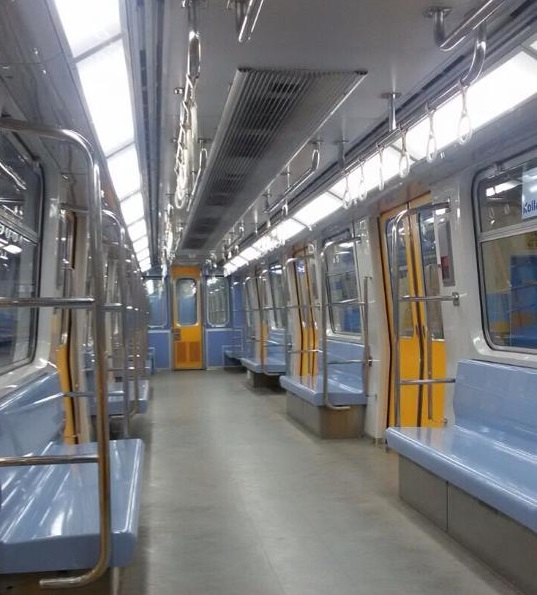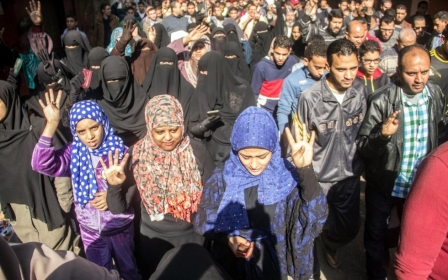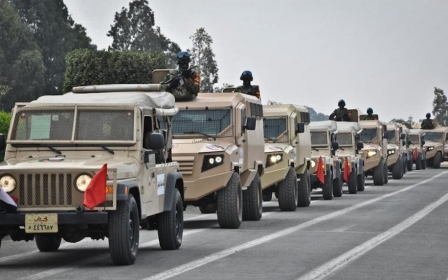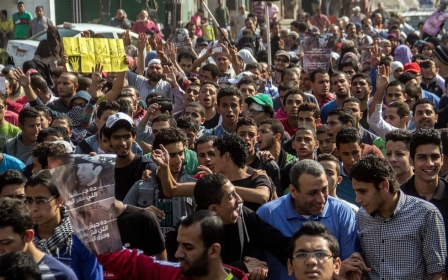Cairo eerily quiet after Egypt's 'Islamic Revolution'
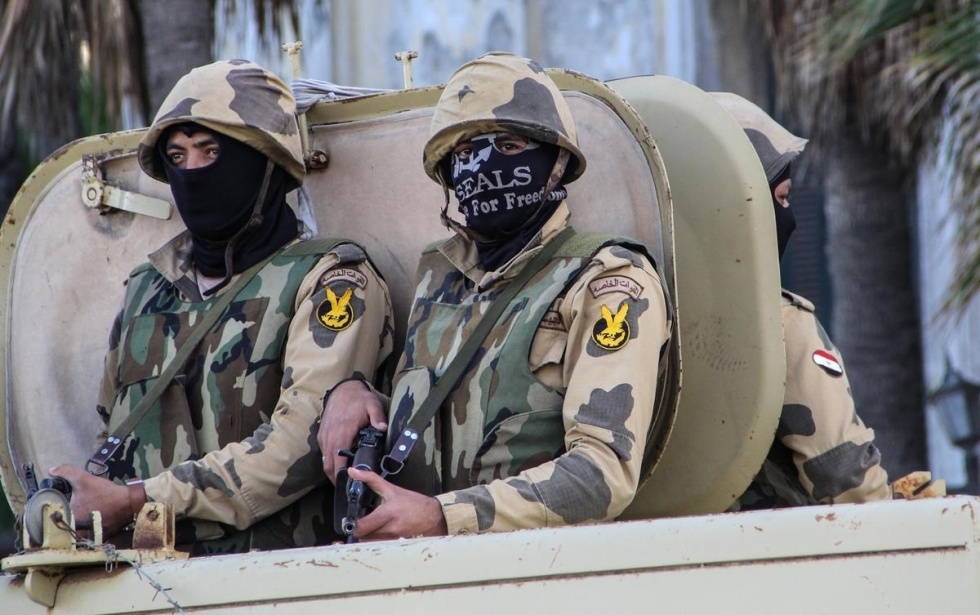
CAIRO: Today, 28 November, has been conversation number one in Egypt for weeks.
After calls for "Islamic identity" protests by the Salafi Front, trumpeted by others as an impending "Muslim Youth Intifada" or even an "Islamic Revolution," the date has rarely been far from people's minds, or newspaper headlines. What was going to happen? How many people would die? And how would the security forces respond?
In the end, other than relatively small but deadly clashes in the Matareya neighbourhood in north-west Cairo, not much did happen.
A demonstration against the government ran through Matareya following Friday prayers with 400 people in tow, according to figures supplied by the Interior Ministry.
Eyewitnesses reported that police used live ammunition to disperse the protest, although the authorities have claimed that fatalities from the clashes were caused by a drive-by shooting.
According to AFP five people have been killed in total, including two security officers.
In total, nearly 250 were arrested, the ministry said in a statement on Friday evening.
An explosion caused by a sound bomb also hit Abdel Moneim Riad, between Tahrir Square and the River Nile in downtown Cairo, in the mid-afternoon. No casualties were reported.
Friday clashes in areas seen as ‘Islamist’ heavy by security services, like Matareya are not uncommon in Egypt these days. Increasingly, so are explosions in downtown Cairo.
Instead, what was most striking was Cairo's transformation from heaving metropolis to an eerily quiet place.
Around Mohamed Mahmoud for example, normally a bustling street with its own firm place in the history of the 2011 revolution, was turned into a sleepy thoroughfare with small groups of old men sitting outside local cafes and scant few cars driving towards Tahrir Square.
Intermittent, far-off bursts of sirens or the whir of a helicopter meanwhile disturbed what was otherwise a rather normal, albeit unsettlingly quiet, Friday in the Egyptian capital.
Islam, a part-time Arabic teacher in his last year of university, ventured out in the morning with a friend.
"We went to al-Ahram Metro station [in Giza] and there were officers there and soldiers inside,” said Islam, who did not want to give his last name for security reasons.
“One of them asked to check our bags and then he started asking weird questions, things like: 'Where are you coming from? What were you doing there? Where are you going?'"
After showing their IDs, Islam was asked to hand over his mobile phone to an officer. "He started checking my phone – my Facebook messages, WhatsApp, Instagram, emails – even iTunes," he added.
"When I was in the Metro with the officer asking me weird questions, I felt unsafe. He was on my phone, looking at my photos – that's my privacy."
After the interrogation, they were free to go, at which point they began travelling on a deserted Metro train into a subdued downtown Cairo.
"Everything was empty," Islam remembers, "it was nice, actually."
"But I was worried the whole time because I didn't know what might happen. If anything did happen, I know they'd use guns."
Tina Bexson, who is visiting Cairo as a tourist, also saw the city at its quietest.
"The streets were completely quiet – which was quite unnerving, actually."
"I was pleasantly surprised to feel so safe but it was slightly odd because it was just so quiet," she explained, while admitting that she'd known about the demonstrations but was still able to walk around parts of the city relatively easily.
"It is Friday and I was leaving the hotel early, but there was still a slight feeling of anticipation…Things didn't really get heated though."
With most of its population tucked away in their homes, Cairo became a shell of itself. Instead, the hollowed city hollowed revealed its skeleton - the security apparatus.
According to al-Shorouk newspaper, as many as 220,000 troops were deployed on the streets of Egypt throughout the day.
Mostafa lives in a village on the outskirts of western Cairo. Even there, armed Special Forces troops stationed themselves in the middle of the village – something Mostafa has not seen since 2010 – a turbulent year before the revolution toppled former strongman Hosni Mubarak in 2010.
"All of us were surprised," he explained. "The police have always been on the edges, not the village itself. But today they came in to the village itself – with guns and masks."
"Two police cars with Special Forces carrying guns were in front of our home, because there was a [Muslim] Brotherhood protest with Qurans and [Mohamed] Morsi posters," he added.
"I've been watching this all day from the balcony. I didn't go out at all."
Yet still, Mostafa – who also did not want to give his name for security reasons - describes it as a "totally ordinary day" in terms of the clashes. The security presence on the other hand was rather unusual, Mostafa explained.
On Saturday, newspaper columns will start to dissect why the so-called ‘Islamic Revolution’ failed. Has Egypt's security strategy succeeded? Is the street-level power of political Islam on the wane? Was it all just over-hyped by the media?
But with heightened security, scattered street-level dissent and the prospect of terrorism - as well as the impact of all these factors on ordinary life – tensions will likely remain. As night fell, Cairo was only cautiously getting back to normal, with the streets still far quieter than an ordinary Friday night, suggesting the country's hopes for a smooth transition towards stability may be a way off yet.
New MEE newsletter: Jerusalem Dispatch
Sign up to get the latest insights and analysis on Israel-Palestine, alongside Turkey Unpacked and other MEE newsletters
Middle East Eye delivers independent and unrivalled coverage and analysis of the Middle East, North Africa and beyond. To learn more about republishing this content and the associated fees, please fill out this form. More about MEE can be found here.


